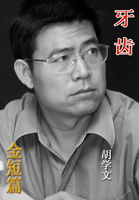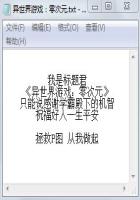Here, let me give you a little warning. When you read a novel about the French revolution or see a play or a movie, you will easily get the impression that the Revolution was the work of the rabble from the Paris slums. It was nothing of the kind. The mob appears often upon the "evolutionary stage, but invariably at the instigation and under the leadership of those middle-class professional men who used the hungry multitude as an efficient ally in their warfare upon the king and his court. But the fundamental ideas which caused the revolution were invented by a few brilliant minds, and they were at first introduced into the charming drawing-rooms of the "Ancien Regime" to provide amiable diversion for the much-bored ladies and gentlemen of his Majesty's court.
These pleasant but careless people played with the dangerous fireworks of social criticism until the sparks fell through the cracks of the floor, which was old and rotten just like the rest of the building. Those sparks unfortunately landed in the basement where age-old rubbish lay in great confusion. Then there was a cry of fire. But the owner of the house who was interested in everything except the management of his property, did not know how to put the small blaze out. The flame spread rapidly and the entire edifice was consumed by the conflagration, which we call the Great French Revolution.
For the sake of convenience, we can divide the French Revolution into two parts. From 1789 to 1791 there was a more or less orderly attempt to introduce a constitutional monarchy. This failed, partly through lack of good faith and stupidity on the part of the monarch himself, partly through circumstances over which nobody had any control.
From 1792 to 1799 there was a Republic and a first effort to establish a democratic form of government. But the actual outbreak of violence had been preceded by many years of unrest and many sincere but ineffectual attempts at reform.
When France had a debt of 4000 million francs and the treasury was always empty and there was not a single thing upon which new taxes could be levied, even good King Louis (who was an expert locksmith and a great hunter but a very poor statesman) felt vaguely that something ought to be done.
Therefore he called for Turgot, to be his Minister of Finance.
Anne Robert Jacques Turgot, Baron de l'Aulne, a man in the early sixties, a splendid representative of the fast disappearing class of landed gentry, had been a successful governor of a province and was an amateur political economist of great ability.
He did his best. Unfortunately, he could not perform miracles. As it was impossible to squeeze more taxes out of the ragged peasants, it was necessary to get the necessary funds from the nobility and clergy who had never paid a centime.
This made Turgot the best hated man at the court of Versailles.
Furthermore he was obliged to face the enmity of Marie Antoinette, the queen, who was against everybody who dared to mention the word "economy" within her hearing. Soon Turgot was called an "unpractical visionary" and a "theoretical- professor" and then of course his position became untenable.
In the year 1776 he was forced to resign.
After the "professor" there came a man of Practical Business Sense. He was an industrious Swiss by the name of Necker who had made himself rich as a grain speculator and the partner in an international banking house. His ambitious wife had pushed him into the government service that she might establish a position for her daughter who afterwards as the wife of the Swedish minister in Paris, Baron de Stael, became a famous literary figure of the early nineteenth century.
Necker set to work with a fine display of zeal just as Turgot had done. In 1781 he published a careful review of the French finances. The king understood nothing of this "Compte Rendu." He had just sent troops to America to help the colonists against their common enemies, the English. This expedition proved to be unexpectedly expensive and Necker was asked to find the necessary funds. When instead of producing revenue, he published more figures and made statistics and began to use the dreary warning about "necessary economies" his days were numbered. In the year 1781 he was dismissed as an incompetent servant.
After the Professor and the Practical Business Man came the delightful type of financier who will guarantee everybody 100 per cent. per month on their money if only they will trust his own infallible system.
He was Charles Alexandre de Calonne, a pushing official, who had made his career both by his industry and his complete lack of honesty and scruples. He found the country heavily indebted, but he was a clever man, willing to oblige everybody, and he invented a quick remedy. He paid the old debts by contracting new ones. This method is not new.
The result since time immemorial has been disastrous. In less than three years more than 800,000,000 francs had been added to the French debt by this charming Minister of Finance who never worried and smilingly signed his name to every demand that was made by His Majesty and by his lovely Queen, who had learned the habit of spending during the days of her youth in Vienna.
At last even the Parliament of Paris (a high court of justice and not a legislative body) although by no means lacking in loyalty to their sovereign, decided that something must be done. Calonne wanted to borrow another 80,000,000 francs.
It had been a bad year for the crops and the misery and hunger in the country districts were terrible. Unless something sensible were done, France would go bankrupt. The King as always was unaware of the seriousness of the situation. Would it not be a good idea to consult the representatives of the people?
Since 1614 no Estates General had been called together. In view of the threatening panic there was a demand that the Estates be convened. Louis XVI however, who never could take a decision, refused to go as far as that.















